Africa presently has nearly 700,000 professional developers. This is according to the e-Conomy Africa 2020 report released by Google and the International Finance Corporation (IFC). According to the new report, more than 50% of these developers are concentrated in five key markets: Egypt, Kenya, Morocco, Nigeria, and South Africa.
This represents a historical peak in the continent and the report forecasts a continuous rise.
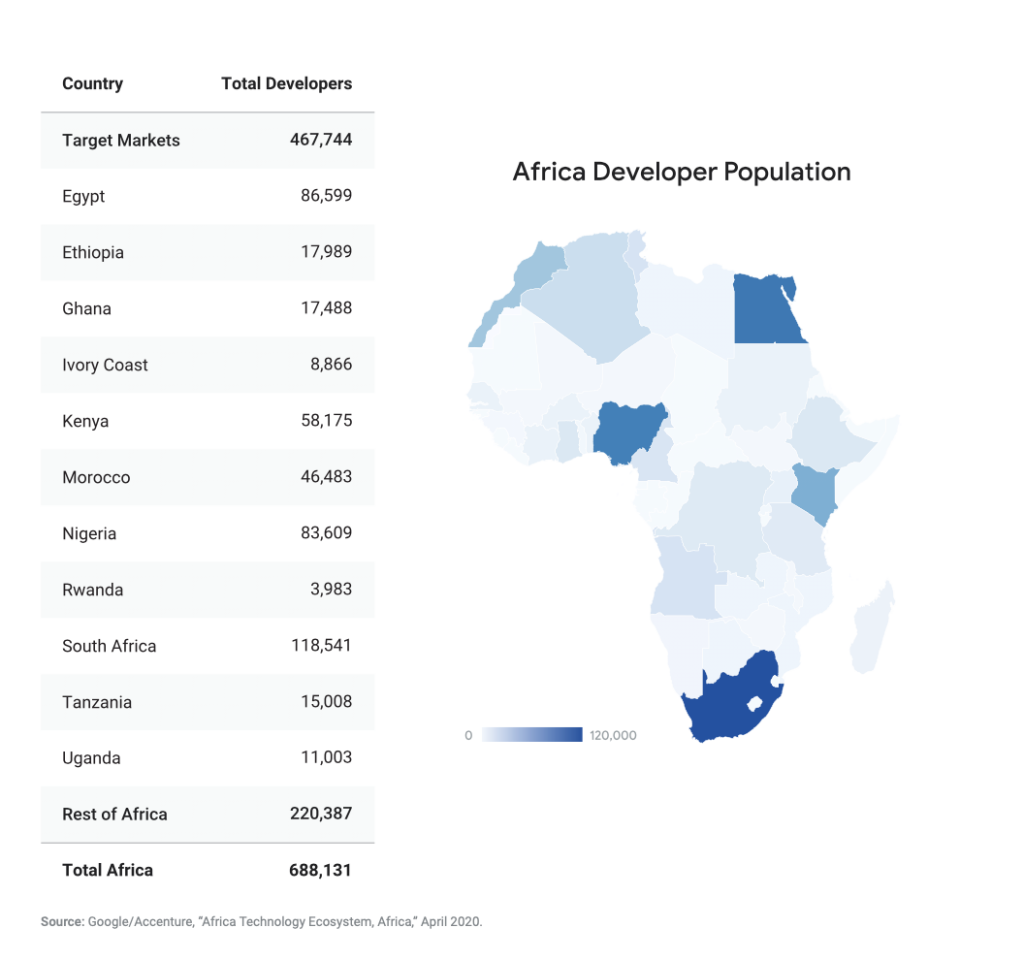

The report also shows that while there is rising interest in developer careers, a growing number of developer communities, and an increasing number of programs springing up to address training, the developer ecosystem is still nascent.
This can be measured on two important indicators:
First is the experience of the players: The majority of the programs and developers are currently at a junior level. According to the report, African developers are still very young, with junior developers making up a large portion of the developer base.
“In African countries with smaller and more nascent developer populations, 43% of developers have only one to three years of experience, compared with 22% in the United States.”
The next wave of focus for the continent will be to cultivate greater numbers of experienced and senior-level developers.
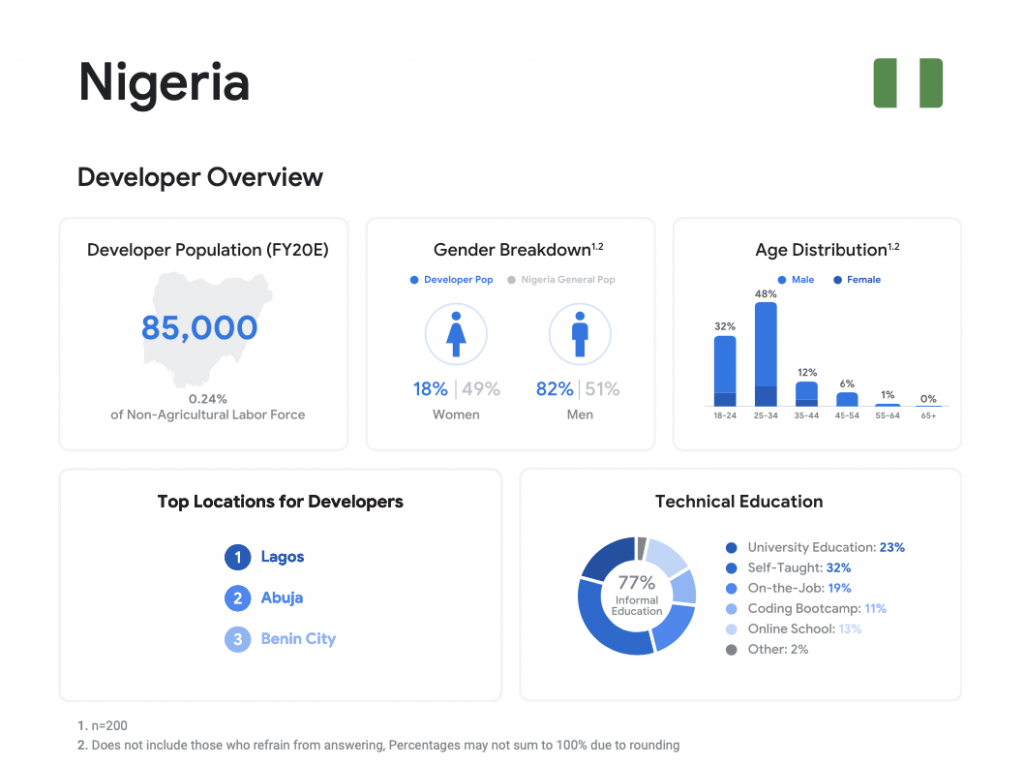

The second is the volume of the players: African developers are still quite small when compared with more mature ecosystems around the world. According to Evans Data, Latin America had 2,162,461 developers in 2019, with Brazil (573,400), Mexico (315,300), and Argentina (304,600) leading the region in total numbers. And in the state of California alone, the number of software developers is 628,414, according to data from Daxx.
Interestingly, women currently comprise one in five of the total population of developers in Africa. A thorough breakdown indicates that 79% of developers in the region are male while 21% are women whereas the percentage of women developers in the US is 15%.
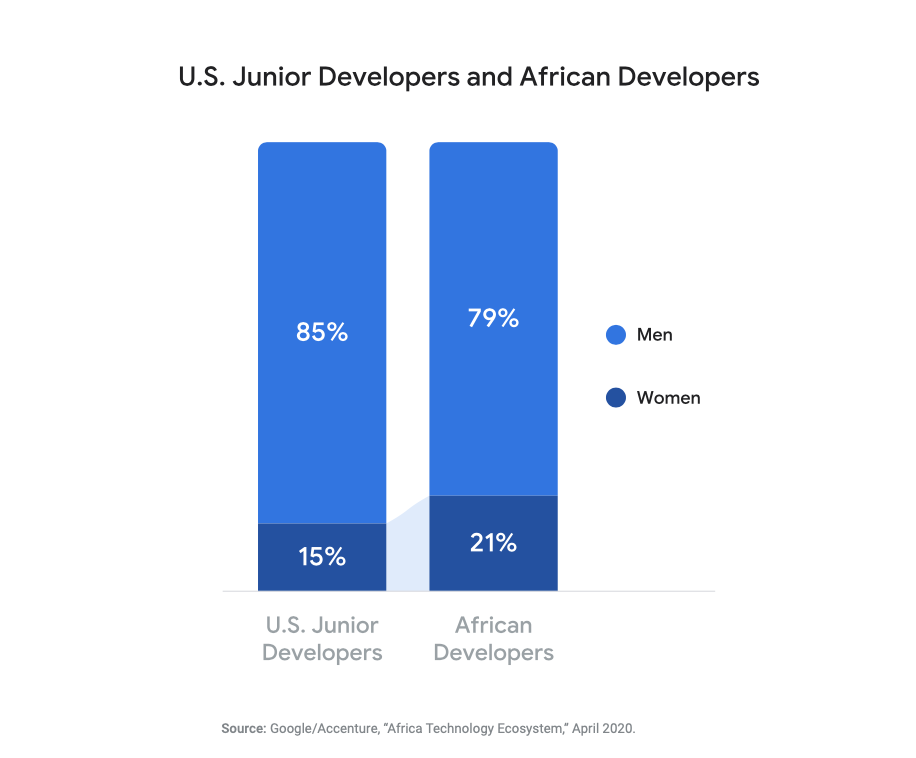

While this number is still low, the growth of the ecosystem has started creating many opportunities for women coders, especially in Egypt, Morocco, and South Africa.
Overall, the report shows that most African developers are self-starters. African developers use a mix of both formal and informal education channels to gain skills and access to well-paying jobs. The top two developer training pathways are through university programs and self- taught channels, such as online coding lessons and resources.
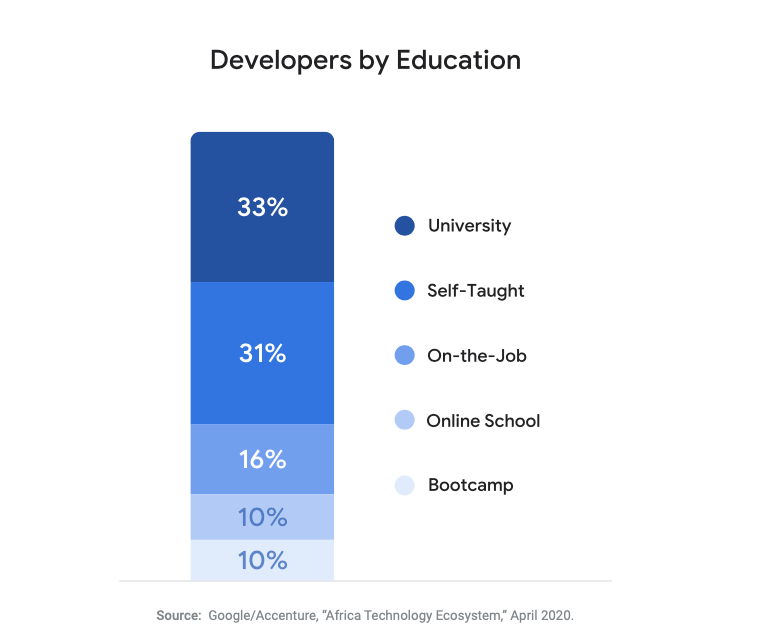

According to the report, Universities train 33% of software developers in Africa, while 31% are self-taught. Combined, online schools and bootcamps, which continue to grow, produce 21% of developers.126 On-the-job training makes up the fifth pathway with 16%.
The e-Conomy Africa 2020 report also indicates that many seek a career in software development as an avenue for social mobility. The immense potential of African developer talent is evidenced in organizations such as Andela, Gebeya and Decagon.
Also, pan-African conferences and programs such as Deep Learning Indaba and African Masters of Machine Intelligence contribute to the ecosystem’s growth by bringing people and businesses together, sharing discoveries, and creating connections that would not otherwise exist.
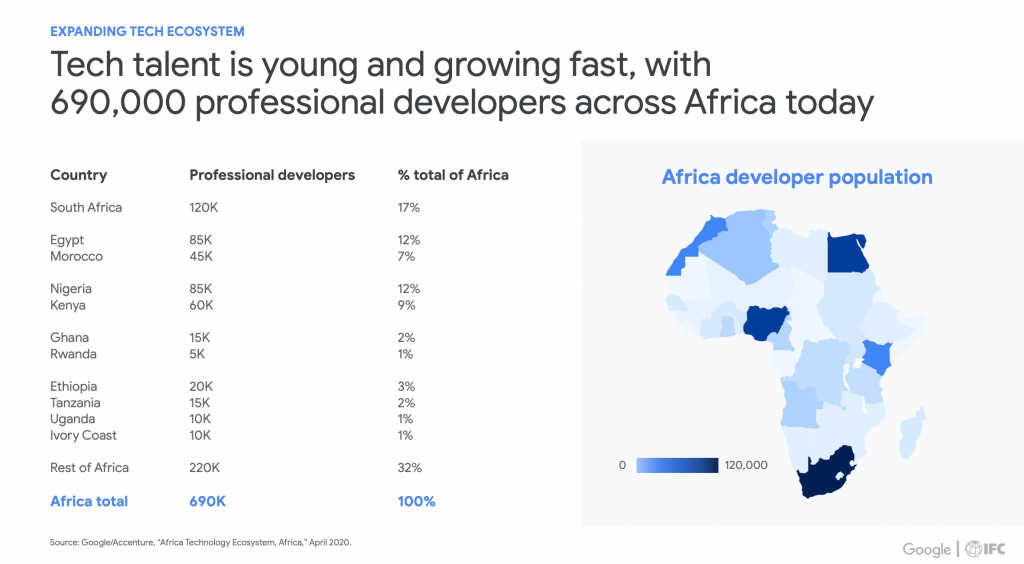

The African Internet Economy to Generate $180 billion by 2025
The report estimates that Africa’s Internet economy has the potential to achieve 5.2% of the continent’s gross domestic product (GDP) by 2025, contributing nearly $180 billion to its economy. The projected potential contribution could reach $712 billion by 2050.
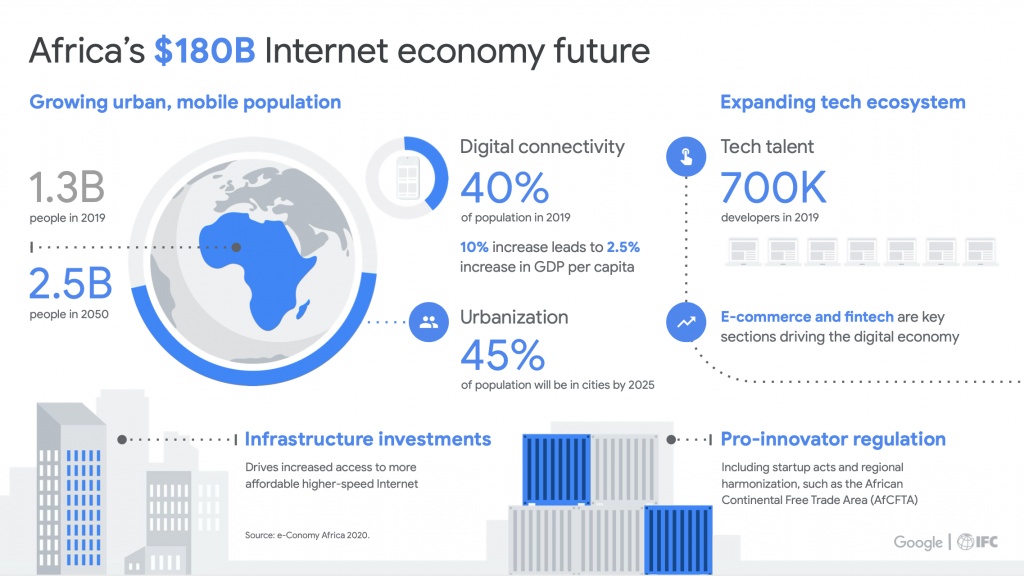

Driving this growth is a combination of increased access to faster and better quality Internet connectivity, a rapidly expanding urban population, a growing tech talent pool, a vibrant startup ecosystem, and Africa’s commitment to creating the world’s largest single market under the African Continental Free Trade Area.
“The digital economy can and should change the course of Africa’s history. This is an opportune moment to tap into the power of the continent’s tech startups for much-needed solutions to increase access to education, healthcare, and finance, and ensure a more resilient recovery, making Africa a world leader in digital innovation and beyond,”
Stephanie von Friedeburg, Interim Managing Director, Executive Vice President and Chief Operating Officer of IFC.
An analysis within the report, conducted by Accenture, found that in 2020, the continent’s iGDP may contribute approximately $115 billion to Africa’s $2.554 trillion GDP (4.5% of total GDP). This is up from $99.7 billion (3.9% of total GDP) in 2019, with the potential to grow as the continent’s economies develop.
Digital startups in Africa are driving innovation in fast-growing sectors, including fintech, healthtech, media and entertainment, e-commerce, e-mobility, and e-logistics. All these sectors contribute to Africa’s growing Internet gross domestic product (iGDP) — defined as the Internet’s contribution to the GDP.
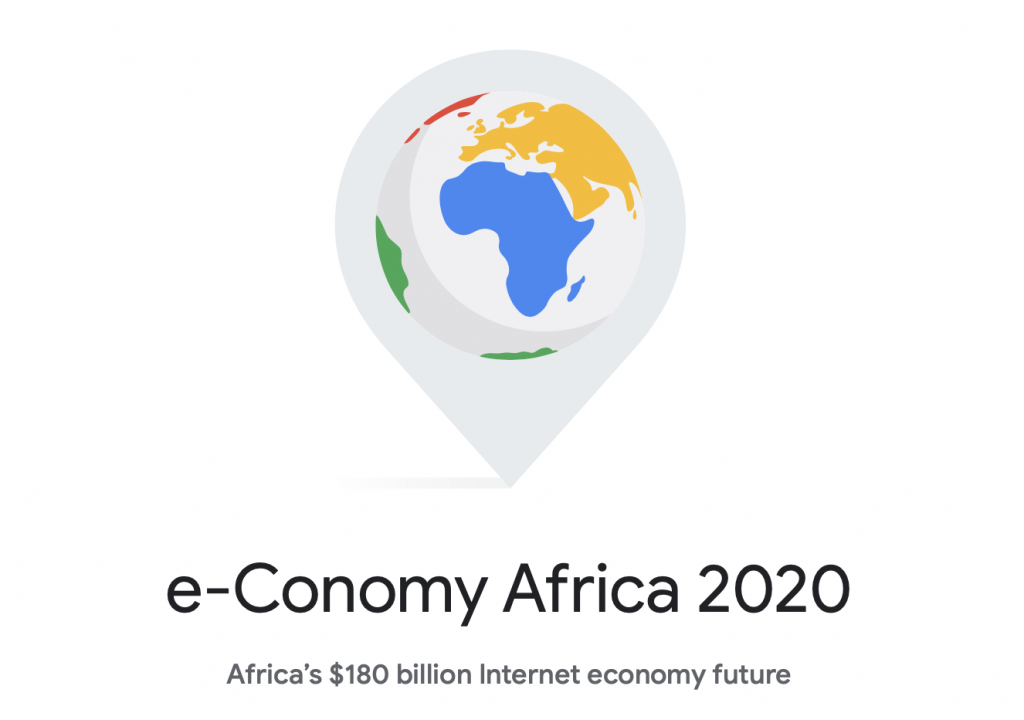

At the unveiling of the report, Google Africa director, Nitin Gajria said
“Google and IFC have created this report to highlight the role the digital startup sector is playing and other factors driving the continent’s growth, in order to showcase and support the opportunities the continent presents,”
Investments in infrastructure, consumption of digital services, public and private investment, and new government policies and regulations will play an important role in supporting Africa’s digital growth.
The report notes that investment in digital skills will also need to increase in order to help drive technology usage and continue to grow the continent’s talent pool.
The report is available for review and download here.






